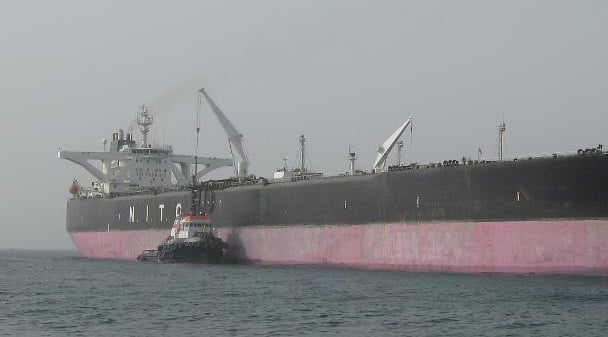Despite U.S. Sanctions, Iran's Oil Exports Hit Record Levels

As Russia faces tightening Western sanctions on its oil exports, its producers may well look to Iran for tactics to evade restrictions and keep the crude flowing to global markets. Despite "maximum pressure" U.S. sanctions, Iranian oil exports hit a seven-year high of 2.3 million barrels per day in October, per TankerTrackers.com - up from just 400,000 barrels per day five years ago. The achievement shows Iran's well-honed skill in disguising and moving its barrels, as well as China's constant appetite for discounted crude.
Iranian oil analyst Homayoun Falakshahi put the number slightly lower at 2.1 million barrels per day, but noted that this would still be at near-record levels. September's numbers were also exceptional for Iran, coming in at about 2.1 million barrels per day at a price discount of about 5-10 percent below dated Brent. This is enough oil to raise roughly $4 billion per month to support the Iranian regime, according to Saeed Ghasseminejad of the Foundation for Defense of Democracies.
Almost all of the oil is sold to buyers in China, where it is popular with the owners of private "teapot" refineries. China accounts for the sale of nine out of ten barrels from Iran, thanks in part to extensive use of subterfuge methods like ship-to-ship transfers, blending and falsified paperwork.
"Despite the framework of U.S. economic pressure, Iran’s observed exports, averaging roughly 1.8 million bpd in 2025, exceed levels recorded during the first Trump administration’s maximum pressure campaign, reflecting the evolution of a parallel ecosystem of shadow tonnage, permissive registries, and non-transparent financing," commented Ghasseminejad in a research note published last month.

that matters most
Get the latest maritime news delivered to your inbox daily.
The numbers show Iran's continued ability to flout American pressure. Upon taking office in January, President Donald Trump instructed the State Department to "impose maximum economic pressure on the government of Iran." The executive order was intended to deny Iran the financial ability to make nuclear weapons and ballistic missile systems; Iran's nuclear program was dealt a major setback in June when long-range American airstrikes hit its uranium enrichment facilities, but many analysts believe that its nuclear ambitions remain intact.
The October numbers also follow the reimposition of UN sanctions on Iran's nuclear program. On September 27, with backing from European Union member states, the United Nations rebooted six sanctions resolutions that had been dormant since 2015 under the terms of the Joint Comprehensive Plan of Action (JCPOA), commonly known as the "Iran nuclear deal." The UN sanctions target Iranian nuclear and military activities, including its arms export industry, but do not take aim at its energy trade.
